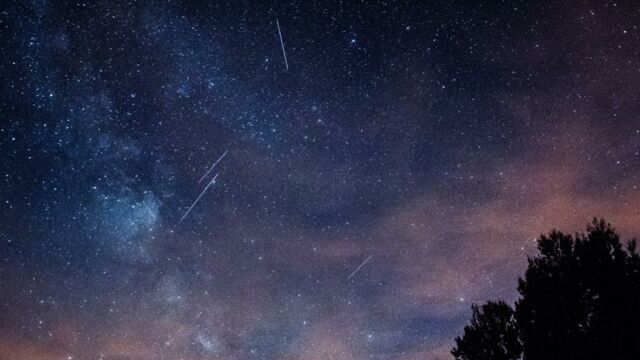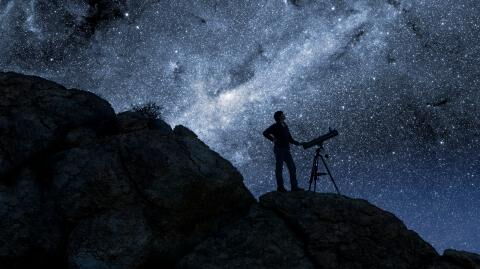Just like July, with the Pegasids, the Piscis Austrinid and the Gamma Draconids meteor showers, August is full of astronomical events. This month has two meteor showers, including one of the most famous ones, as well as the last super moon of the year. For astronomy enthusiasts, this means new events to mark in the diary. Here are the ones you should not miss.
Discover our latest podcast
The Perseid meteor shower
The first of these is the famous Perseid meteor shower. Associated with the comet Swift-Tuttle, this is one of the most beautiful showers of the year!
Nicknamed the ‘Tears of St. Lawrence’ because of its usual date, close to St. Lawrence Day, this meteor shower lasts about forty days and will reach its peak on August 11 and August 12 according to space.com. Astronomy lovers should know that you will be treated to a real spectacle, as about a hundred meteors per hour are expected.
The Sturgeon Supermoon
Good news never comes alone, on August 11 the Sturgeon Super Moon will take place. Taking place just two days after the perigee of Earth's natural satellite, it will be the last super moon of the year. Let's hope its glow doesn't spoil the spectacle of the Perseid meteor shower.
For the record, it owes its teasing nickname to native Americans. Star Walk says
August’s Full Moon is called the Sturgeon Moon because it was easy to catch the largest freshwater fish, sturgeon, in the Great Lakes of North America during this part of summer.
The Kappa-Cygnids Shooting Star Shower
Finally, another meteor shower is expected during August: that of the Kappa-Cygnids. Active from 3 to 25 August, this swarm will reach its peak on 17 August and will illuminate the sky with beautiful white streaks.
Compared to the Perseid meteor shower, this will be a smaller show, as 'only' 3 meteors per hour are expected.
This article was translated from Gentside FR.
Read more:
⋙ Here’s everything you need to know about tonight’s meteor shower, July 28















